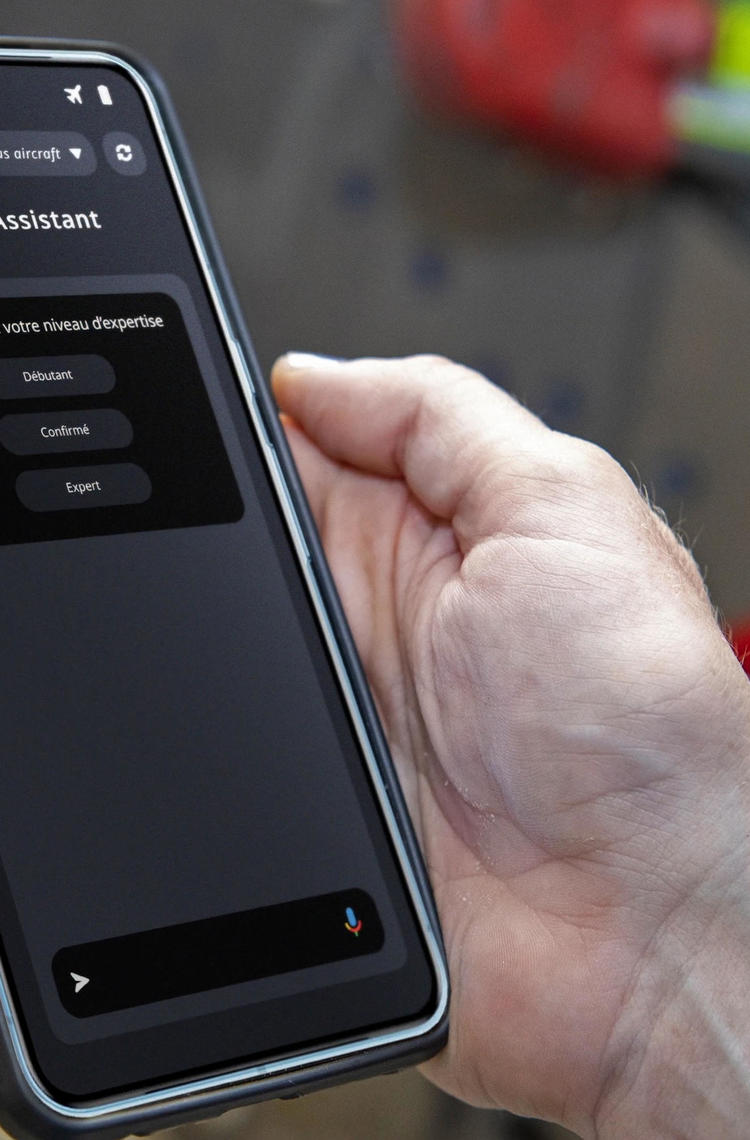At Airbus, from manufacturing to customer service, generative artificial intelligence (GenAI) offers many opportunities to improve how we operate.
For several years now, artificial intelligence (AI) has contributed to Airbus' success. In 2016, applying AI in OneAtlas made it possible to process high-resolution satellite images and extract useful information for farmers, insurers and energy companies. Since 2017 the Skywise digital platform, which uses technologies such as Natural Language Processing (NLP), has been improving predictive maintenance and limiting the breakdowns of aircraft in service.
Initially, the use of AI was limited to specialist engineers or data scientists. Things are changing. The arrival of generative artificial intelligence brings the technology within reach for many more people. Its use is reaching unprecedented heights, with enormous potential in terms of efficiency, savings and quality.
To make the most of the opportunity and make GenAI accessible to everyone in the company, Airbus launched a company-wide working group in 2023. "This group aims to bring the power of generative AI, large language models and base models to Airbus, while developing the policies and safeguards to do so responsibly, in line with our core values," says Catherine Jestin, Airbus Executive Vice President Digital.
From engineering assistants, contract analytics, recruitment tools to cyber threat and risk analysis and procurement optimisation, 600 use cases have been identified across Airbus in less than a year. They range from improving processes to optimising the performance of products, services and support activities. GenAI can be applied to internal activities or to transforming customer relations, automating routine tasks or establishing itself as a genuine game changer.
Better manage complex and technical documents
"While it is unlikely that GenAI will be able to design future Airbus products from scratch, its ability to assist humans by enabling them to better manage complex and technical documents is proving promising," says Fabrice Valentin, head of AI and Advanced Analytics at Airbus.
One experiment, for example, aims to demonstrate how technology can help after-sales service teams to provide answers more quickly. Another full-scale experiment involves testing an AI assistant for Standard Operating Instructions, the manufacturing instructions used to build the aircraft. The chatbot facilitates access to technical data. "For example, it enables us to check in an instant, using natural language, which torque spanner to use for a specific operation, whereas using a tablet sometimes involves going through many pages of documentation", Fabrice Valentin explains.
In just a few months, GenAI has begun to make headway across Airbus. The experiments currently underway suggest some exciting prospects. However, large-scale deployment will take some time, at least in certain areas. "We have to comply with the regulatory constraints that characterise the aerospace industry, and we want to ensure that GenAI's solutions are used in a safe , responsible, ethical and sustainable way," concludes Catherine Jestin.
How Airbus uses generative artificial intelligence to reinvent itself
Discover more Innovation news
Continue Reading
Singapore to establish world’s first airport testbed for next generation propulsion…
Press Release
Innovation
Civil Aviation Authority of Singapore, CFM International and Airbus sign MOU to prepare the aviation ecosystem for next generations of aircraft
How Airbus is pioneering aircraft manufacturing with Titanium 3D printing
Web Story
Innovation

Recycled and ready
Web Story
Innovation

Expanding 5G connectivity with the Airbus UpNext SpaceRAN demonstrator
Web Story
Innovation

Driving innovation at Airbus Helicopters
Web Story
Helicopters

